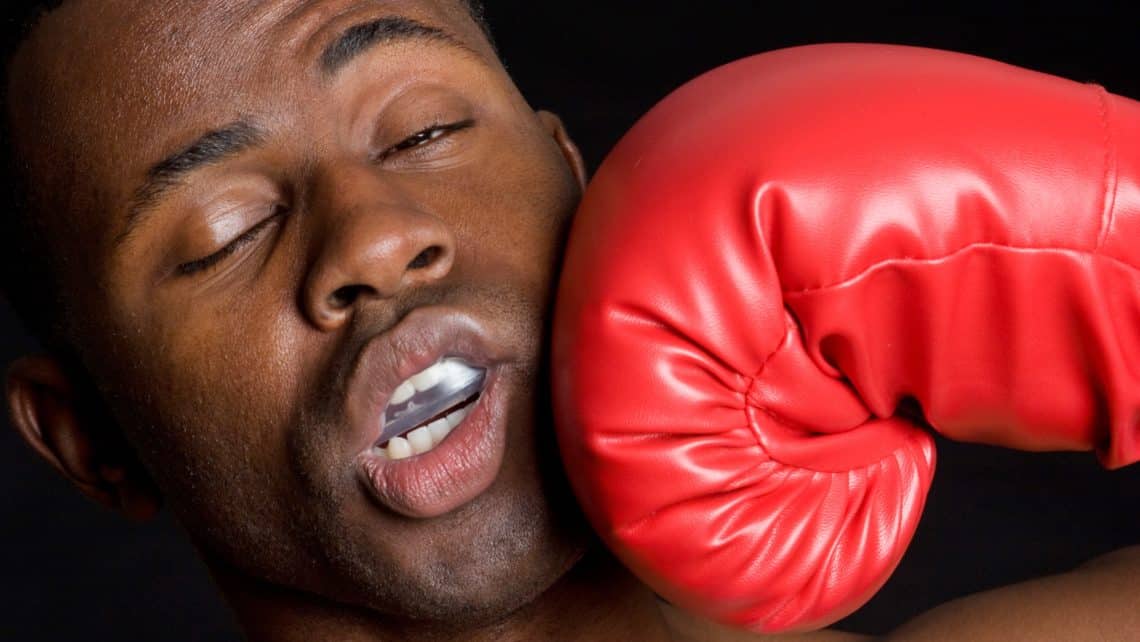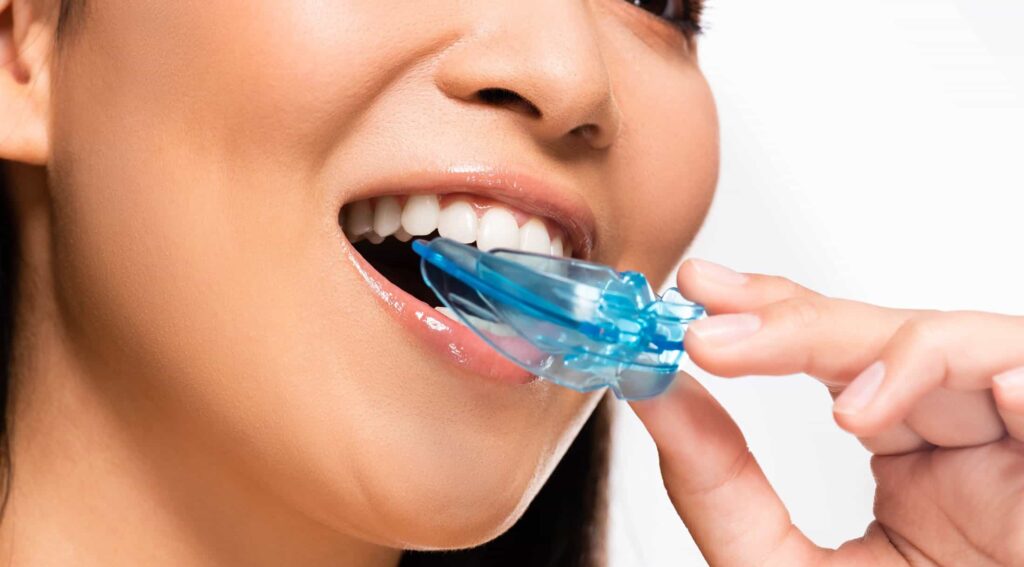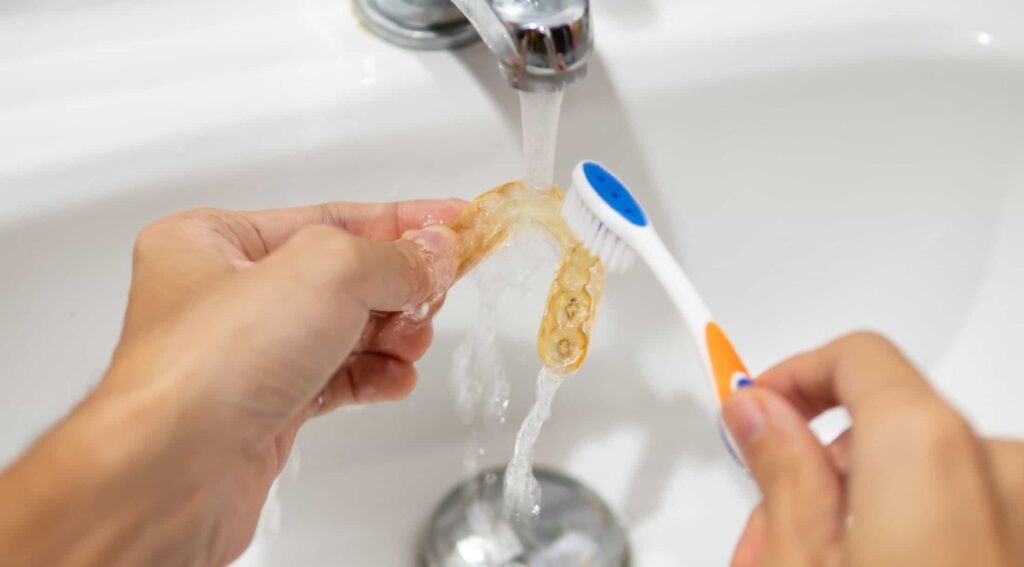Do you play contact sports? Do you wear padding, helmets, and protective gear while playing sports? Do you avoid wearing a mouthguard while playing sports? If so, continue to read why wearing a mouthguard is arguably one of the most important pieces of equipment that can protect your teeth and jaws on the field.
It is a known fact that an effective mouth guard decreases the chance of mouth injuries by almost 100%. Mouthguards are used to protect teeth from grinding or clenching while you sleep. They can also help to reduce snoring and relieve obstructive sleep apnea. While these are non-sports related issues, we will be discussing mouth guards from a sports perspective.
What are the benefits of wearing a mouthguard?
Wearing a mouthguard especially while playing, offers several advantages such as:
- They can cushion a blow to the face thereby preventing the risk of broken or knocked-out teeth
- They can protect the lips, tongue, and inner lining of the cheeks
- They can protect players who wear braces by preventing damage to the brackets and act as a barrier between the braces and the cheeks or lips, thus lowering the risk of gum injury
- They help prevent damage to bridges and other fixed orthodontic appliances
- They are the first point of impact and are not expensive to replace compared to the cost of repairing or fixing dental injuries
- They have been proven through studies to reduce the risk of mild traumatic brain injures/concussions because they help absorb the shock caused by a direct blow to the jaw
What are the different types of mouthguards?
There are three types of mouthguards that are used by sportspeople: Stock, Boil & Bite, and Custom. They are different from each other and so is the protection offered by each.
Stock Mouthguard
This is the most basic type of mouthguard that can be bought off the shelf and only offers minimal protection. They are available in different sizes which require trial and error in fitting and can be loose-fitting or uncomfortable if the fit is not close enough.
They are the least expensive option and can be bought at most sporting goods or pharmacy outlets.
On the negative side, they come in a one-size-fits-all which means they can be loose-fitting or uncomfortable. They can also cause difficulty breathing or speaking and being least retentive, may fall out at inopportune moments, thereby offering limited protection
Boil and Bite Mouthguard
A boil and bite mouthguard offers a little better protection when compared to a stock guard. As the name suggests, this type of mouthguard needs to be heated in hot water until the plastic becomes soft. Once cooled, you need to bite down into the guard, which will cause the plastic to make a rough mould of your teeth.
They are relatively cheap and can also be found in most sporting goods or pharmacy outlets. They offer a comparatively better fit because of the boil and bite process.
On the negative side, failure to adhere to the manufacturer’s instructions may result in uneven distribution of material which in turn may cause instability. Bite-through is common and their structural integrity decreases over time which loses protection.
Custom-made Mouthguard
The best mouthguard is the one that is customised according to the structure of your mouth. It is recommended by dentists and created using your teeth impressions for a perfect and comfortable fit.
The best advantage of a custom mouthguard is that it is designed to fit the specific contours of your mouth and jaw. It accounts for dentition and intra-oral anatomical features with even distribution of material to provide comfort and stability. It provides ease of breathing and speaking and maintains structural integrity over time, thereby providing the highest level of protection.
The only negative aspect of a custom mouthguard is its cost compared to the other types, which is negligible compared to the cost of fixing a dental injury.
How can you protect your mouthguard?
As with any investment, protecting your custom mouthguard is required to prevent damage and to follow sanitary guidelines.
- Store the mouthguard in a well-ventilated container to keep it dry and to keep bacteria from growing
- Transport the mouthguard in a sturdy plastic box to prevent structural damage
- Do not expose the mouthguard to heat or direct sunlight as both may melt the material, thus altering the fit and reducing protection
- Thoroughly brush the mouthguard (with a toothbrush and toothpaste) before and after each use. Do not use hot water
- Regularly check for signs of wear and tear. If the fit is coming loose, discuss with your dentist
- Bring your mouthguard to every dentist visit to ensure it is cleaned professionally and to check the structure and fit
Talk to us if you need a custom mouthguard.
We will be able to create a custom mouthguard for the best fit and help prevent injury. Call our friendly team on 3390 6100 or email us. Or click here to book your appointment.









